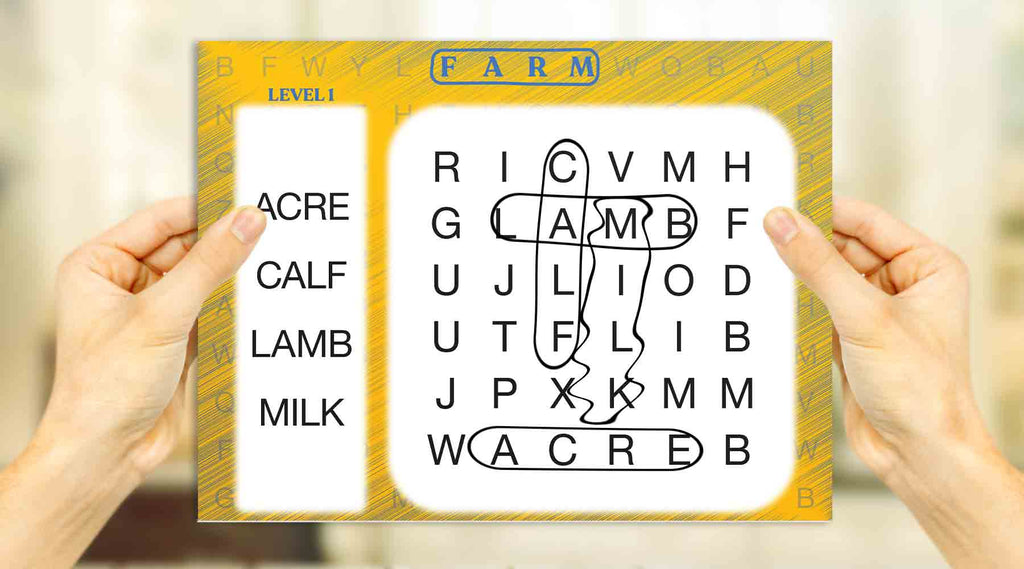
Word Search is a familiar and popular pastime for many people. It is engaging and offers cognitive challenges as well as providing positive feedback finding the hidden words. Depending on the person, it can often be done with little supervision. Unfortunately, people with Alzheimer's or dementia often stop doing puzzles such as word finds because they find the puzzles too challenging and have difficulty completing them. This does not have to be the case.
Using puzzles specially designed for people with dementia that have larger print and fewer words may allow the person to regain their enjoyment in doing the puzzles. The key is to start with easy puzzles to allow the person to be successful, moving to more difficult puzzles only if the person completes the easier puzzles with minimal assistance. There is no benefit in “pushing” the person, it is much more important that they successfully complete the puzzle independently.
Start by sitting at the table with the easiest level word search puzzle and ask the person if they would like to help you with a puzzle. If they say no, just start doing the puzzle and they may just come over to see what you’re doing. If they don’t, try again another time. Once the person is interested in the puzzle, follow their lead. If they point to a word in the word list, encourage them to find it. If they have trouble, try pointing to the first letter of the word in the grid, then give them time to find the rest of the word. If they still have trouble, try highlighting the first letter or even the whole word so that it stands out from the grid. Remember, whenever possible demonstrate rather than explain.
When the person finds the word, praise them and if necessary, show them how to circle the word and cross it off the word list. When they complete the puzzle congratulate them and ask them if they would like to do another one. If they completed the first puzzle with ease, ask them if they would like to try a different level, otherwise give them another puzzle at the same level. It is important to not increase the level of difficulty until the person is ready. Let them build on their success.
We offer w0rd search puzzles for people with dementia in three levels, including four hidden words in Level 1, six hidden words in Level 2 and ten hidden words in a Level 3. At all levels the hidden words run only from left to right and down. There are no words that run diagonally, backwards or up.
If you’re just getting started and don’t know where to begin, try our single level set with all 6 puzzles at the selected level. We find that even when someone with dementia is able to do a higher level puzzle, there are days when a lower level is more suited and it’s good to have a variety for those days. At the bottom of this post we have included a link to download a Level 1 (easy) and Level 2 puzzle that you can try.
Sometimes a person is successful with Level 1 word puzzles but struggles with Level 2, not because they are too difficult, but rather, because they have difficulty reading the puzzle due to vision problems. If this is the case, we offer special Low Vision puzzles printed on larger paper in a larger font and wider spacing.
It is possible that once the person has been successful with the Level Three puzzles they may be able to do some easier “regular” word searches, but be careful that they do not get frustrated. Do not attempt this until the person can successfully complete Level 3 puzzles with ease. If they have trouble with the regular puzzles, congratulate them on what they've done and next time go back to an easier word search game.




